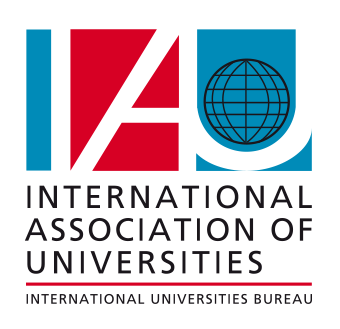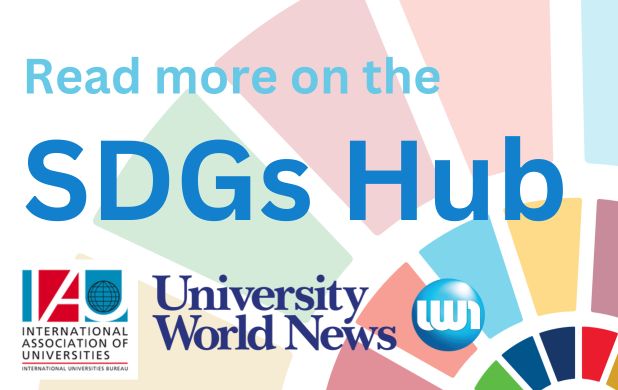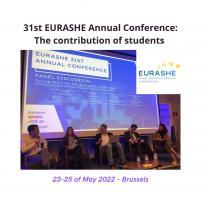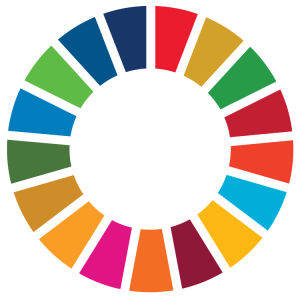Skill relevance, Inclusion, Digitalization and Innovation were the key words of the 31st EURASHE annual Conference held in Brussels this 23, 24, 25 of May 2022.
EURASHE, the European Association of Institutions in Higher Education, gave the opportunity to 10 students from different European countries (Belgium, Croatia, Finland, Germany, Greece, Italy, Luxemburg, Portugal, Romania), to participate on site and actively contribute to the conference’s sections. This short article aims at presenting the main take home messages and thoughts collected from the attending the conference.
The conference brought up mindful reflections on the implementation of the European Skills Agenda and the digital education plan, the alliances among universities and the European education area, the importance of homogenizing the data collection, and many other related topics. The discourse emphasized on several occasions how HEIs contribute to achieving the challenging objectives of the European Green Deal: Educating future citizens, building a collaborative culture and empowering students with new skills.
During the panel discussion “Future Skills for the European Green Deal” the quadruple helix (university-industry-government-public-environment) came together: Business Europe, Mondragon University, European commission DG Employment and student representative. The different points of view complemented each other and discussants came to the conclusion that HEIs need to reinforce both hard and soft skills transmission in teaching and learning. On one side students need to acquire solid “green skills” in order to participate in the evolving job market whilst contributing to achieve the zero net transition and a sustainable resources management. On the other side, it is equally important to stimulate a multidisciplinary and critical approach to research and teaching and learning strategies. Thus, trying to avoid silos of knowledge and facilitate bridges between different disciplines in order to develop holistic view on the complex issues our society is facing is essential. At the same time, strengthening collaboration and cooperation among institutions themselves and the tertiary sector must stand out as crucial strategy in order to reinforce the role of HEIs as key actors in fostering local sustainable development policy.
In addition, in the context of the European Year Of Youth the contribution of students feed in the OECD initiative Stand By Youth. For the occasion the 10 selected students were asking to share their experience and thought about how they were impacted by the pandemic and how their universities adapted to the pandemic restrictions.
“The student experience at the EURASHE 31st Annual Conference has been a deeply reflective opportunity to obtain Pan-European insights on the transformation of education in post-pandemic teaching and learning, but also an impactful process of synthesizing and sharing ideas for the improvement of the educational experience with people able and eager to implement them. The come-together of educators and students fills in the gaps of preconceptions regarding each other’s intentions and challenges, creating ripe ground for designing new, adaptive and effective educational environments”
Student representative: Enei, Greece 10-June 2022
During the closing section of the 31 EURASHE Conference, the participation of students representatives has been recognized as an added value. Therefore, EURASHE decide to include students in their future conferences .
Learn more about EURASHE and the recent event: https://www.eurashe.eu/events/annual-conference-2022/
Guest article written by Emma Furlan, IAU HESD Intern and Programme Support and MA student at Université Paris 1 Pantheon Sorbonne.




